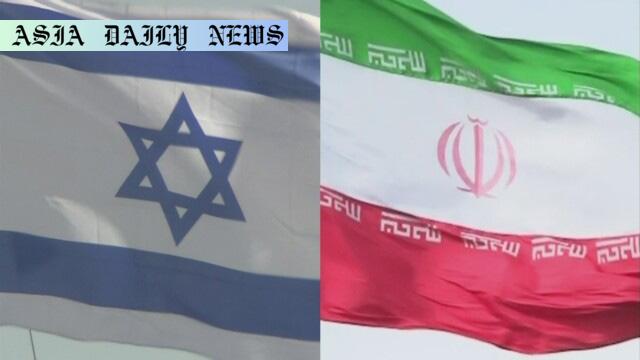Ceasefire: The delicate truce between Israel and Iran appears to remain intact, with no major attacks reported and both nations claiming triumph.

Introduction: The Context of the Ceasefire
The recent 12-day conflict between Israel and Iran has garnered international attention, serving as a reminder of longstanding tensions in the region. This destructive conflict, marked by missile exchanges and escalating rhetoric, came to an unexpected halt as a ceasefire agreement was announced by US President Donald Trump. While this truce is a welcome reprieve, attention remains firmly on its durability and whether true peace can be achieved between these two adversaries.
The Anatomy of the Truce
On Monday, President Trump revealed the ceasefire agreement between Israel and Iran, marking the end of an intense 12-day war. Following the announcement, both nations displayed restraint, with no significant attacks reported since. However, the situation is far from resolved. Shortly after the truce was publicized, Israel launched an attack on an Iranian radar site, citing it as retaliation against Iran’s previously launched missiles. This move raised concerns over whether the ceasefire could truly hold.
The agreement, while fragile, has provided brief respite to both nations. Israeli Defense Minister, Israel Katz, emphasized that Israel would adhere to the truce as long as Iran does. Similarly, Iranian President Masoud Pezeshkian declared the ceasefire a testament to Iran’s resilience. The declaration of victory on both sides underlines the complex narrative of gains and losses in any such conflict resolution.
International Mediation and US Involvement
The United States played a central role in facilitating this ceasefire. President Trump, in his announcement, referred to the agreement as a historic moment deserving global applause. This indicates an active approach by the US in stabilizing the volatile Middle Eastern region. Trump’s intervention and subsequent urging of Israel to avoid further provocations were instrumental in the agreement. However, the international community remains cautious, with analysts questioning the long-term feasibility of this truce given the deep-seated animosity between the two nations.
Victory Claims and Public Sentiments
The aftermath of the agreement has been accompanied by both Israel and Iran claiming victories. Israeli Prime Minister Benjamin Netanyahu described the outcome as a ‘historic victory,’ underlining his nation’s ability to defend its sovereignty. Meanwhile, Iranian President Pezeshkian credited Iran’s resilience and fighting spirit in forcing the ceasefire terms. These public declarations, however, reflect the posturing typical following any conflict negotiation rather than a genuine resolution of issues.
Publicly, sentiments remain mixed within both nations. While some view the ceasefire as a welcome halt to violence, others question its sustainability and criticize their governments for engaging in the conflict. International diplomacy has managed to craft a temporary solution, but the root causes of hostility persist, leaving the possibility of renewed tensions in the near future.
The Fragility of the Ceasefire
Despite the current calm, the situation remains volatile. The attacks post-truce announcement and the rhetoric of mutual distrust indicate uncertainties surrounding the ceasefire’s longevity. The region has seen such agreements deteriorate rapidly before, often leading to more devastating consequences. For the ceasefire to succeed, mutual restraint is crucial, as is an ongoing dialogue facilitated by a neutral mediator. It remains to be seen whether the international community will step up to ensure this truce marks the beginning of a more stable chapter in Israeli-Iranian relations.
Conclusion: A New Hope or Another Chapter?
The ceasefire between Israel and Iran is undeniably a significant development, but its durability raises questions. Both nations stand at a crossroads, with the opportunity to pursue lasting peace or risk another descent into conflict. Diplomacy has achieved a crucial win for now, but the chasm of mistrust and animosities built over decades require deeper resolution. To turn this ceasefire into a stepping stone for sustainable peace, tangible efforts toward building trust and addressing core issues must emerge. The international community, led by the US or other major powers, must retain focus on ensuring this agreement becomes a lasting testament to diplomacy’s power rather than another fleeting deal lost to history.
Commentary
The Significance of Ceasefire in International Conflict
The ceasefire between Israel and Iran is a significant global event that speaks volumes about the complexities of international conflict resolution. It demonstrates the power of diplomacy, even in situations riddled with hostility and deeply entrenched mistrust. The role of the US in mediating this truce showcases how superpowers can influence peacekeeping efforts, but it also raises the question of how durable such agreements can be without addressing the underlying causes of discord.
Fragility of the Agreement
While the ceasefire offers a reprieve, it remains precarious. The provocation by Israel with its radar attack shortly after the ceasefire’s announcement could have undone the agreement entirely. Unless both sides show genuine commitment, such measures risk reigniting hostilities. Furthermore, as history has repeatedly demonstrated, ceasefires in volatile regions like the Middle East often provide only temporary relief. The challenge lies in transitioning from a cessation of violence to a framework for long-term peace.
Hope and Challenges
Despite the fragility, this ceasefire can serve as a beacon of hope. If sustained, it has the potential to pave the way for meaningful dialogue. Both Israel and Iran must see this as an opportunity to step back, reassess their strategies, and acknowledge the human cost of conflict. Additionally, global powers and the United Nations must continue to play a constructive role, ensuring that this moment is not wasted.
Ultimately, while both nations claim victory, the true success of this ceasefire will depend on its longevity and its ability to lead to a broader resolution of tensions. Until then, the world watches with cautious optimism, hoping for a future devoid of violence and filled with peace.


